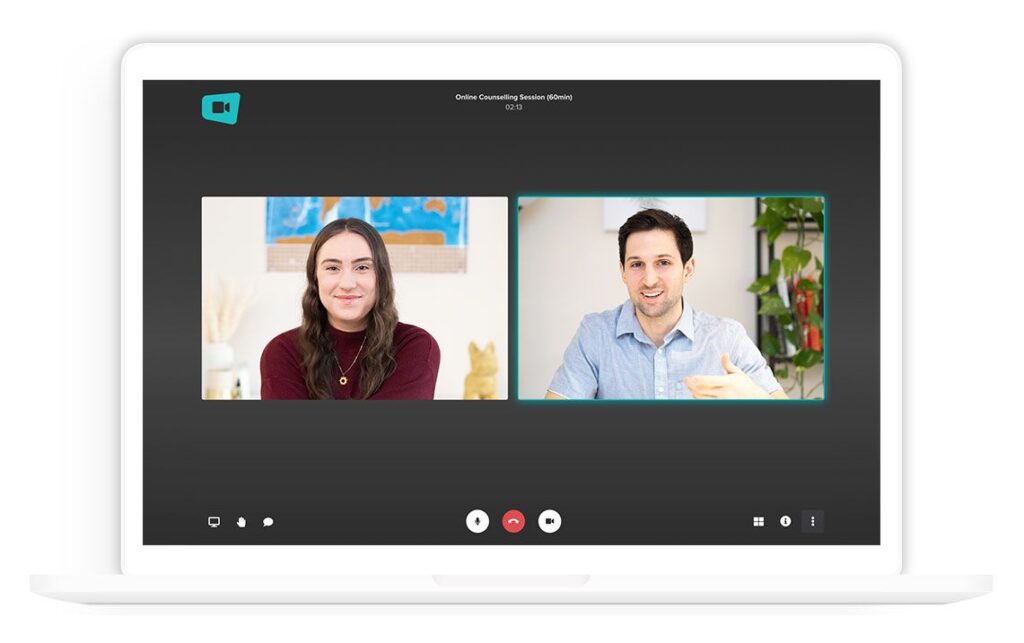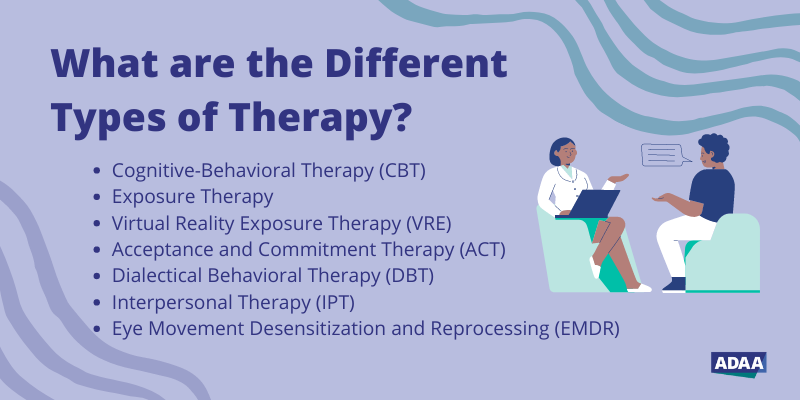Explore proven techniques through counselling for anxiety disorder programs
Explore proven techniques through counselling for anxiety disorder programs
Blog Article
Checking Out Different Techniques in Therapy for Anxiousness Problem for Long-term Adjustment
When taking on anxiousness problems, it's necessary to explore a variety of counseling approaches. Each method offers unique insights and devices to aid you handle your signs and symptoms properly. You could discover that incorporating methods can generate the most effective results. However, understanding the subtleties of these strategies is vital to cultivating long-term modification. Suppose the best combination could release a brand-new degree of emotional well-being for you?
Recognizing Anxiousness Conditions: A Short Introduction
Stress and anxiety disorders, which influence countless individuals worldwide, can substantially affect life. You might experience frustrating feelings of concern or fret that seem unmanageable. These feelings can bring about physical signs like a racing heart, sweating, and even dizziness. Usual kinds of stress and anxiety disorders consist of generalized anxiousness condition, panic attack, and social anxiousness condition. Each has distinct signs, yet they all share a tendency to disrupt your routine and relationships.Understanding the source of your anxiety is important. It might come from genetics, brain chemistry, or life experiences. Acknowledging your triggers can aid you manage your actions better. It is very important to bear in mind that you're not alone in this battle. Many individuals encounter similar difficulties, and looking for help is a strong action towards feeling better. By discovering about stress and anxiety conditions, you're currently on the path to understanding and handling your condition better.
Cognitive-Behavioral Treatment: Challenging Unfavorable Idea Patterns
In Cognitive-Behavioral Therapy, you'll begin by recognizing the negative thought activates that add to your anxiety. You'll function on changing them with even more favorable choices once you acknowledge these thoughts. With each other, you'll build efficient coping methods to aid handle your anxiousness in day-to-day scenarios.
Recognizing Negative Idea Triggers

When you run into minutes of distress, identifying the certain triggers behind your adverse ideas can be essential in managing anxiety. Beginning by taking note of circumstances that provoke feelings of worry or fear. Is it a jampacked area, a future due date, or a conversation with certain individuals? Write down these instances in a journal. This will aid you recognize patterns in your reasoning. Notification physical feelings that accompany your negative ideas, like a racing heart or rigidity in your chest. By determining these triggers, you gain insight right into what's sustaining your anxiety. Recognizing these connections is the initial step in testing those ideas and eventually regaining control over your psychological feedbacks.
Replacing Ideas With Positives
Challenging adverse idea patterns is a necessary step in transforming your mindset and minimizing anxiousness. You may commonly find yourself caught in cycles of insecurity or catastrophic thinking. As opposed to allowing these ideas determine your feelings, method changing them with reasonable choices or positive affirmations. When you think, "I can't handle this," move it to, "I can take care of challenges one step at a time." This easy change can greatly impact your psychological state. Routinely identifying and countering these adverse ideas helps produce a healthier inner dialogue. Remember, it takes time and effort, but consistently practicing this technique can cause long-term change, encouraging you to encounter anxiousness with restored self-confidence and durability.
Building Coping Strategies With Each Other
Changing unfavorable thoughts is only the start of taking care of anxiousness properly. To develop long-term modification, you need to build coping strategies that encourage you. Cognitive-Behavioral Treatment (CBT) helps you identify and test those purposeless thought patterns. With each other, you and your therapist can check out how these ideas effect your feelings and behaviors.Start by creating sensible methods, like journaling or mindfulness exercises, that permit you to face anxiousness head-on. When you face your fears gradually, you'll find out to respond in a different way.

Mindfulness and Acceptance-Based Approaches: Growing Present-Moment Awareness
As you navigate the intricacies of anxiety, integrating mindfulness and acceptance-based approaches can significantly enhance your capability to grow present-moment understanding. By concentrating on the present moment, you'll locate that you can observe your thoughts and feelings without judgment (Counseling services for anxiety). This technique helps you acknowledge your stress and anxiety without feeling overwhelmed by it.Engaging in mindfulness exercises, such as deep breathing, body scans, or led reflections, permits you to ground on your own in your current experience. Acceptance-based methods urge you to embrace your emotions instead than battle against them. They lose their power over you.Incorporating these methods into your everyday regimen can change how you respond to stress and anxiety when you approve your sensations. You'll create durability and discover to browse demanding situations with greater simplicity. Eventually, growing present-moment awareness lays the foundation for long lasting change, empowering you to lead a more satisfying life
Direct Exposure Treatment: Facing Concerns Slowly
Direct exposure therapy assists you confront your worries in a gradual way, making it less overwhelming. You'll learn techniques to face anxiety-provoking situations detailed, while likewise developing coping strategies to manage your reactions. This method empowers you to take control and minimize anxiousness in time.
Gradual Exposure Strategies

When dealing with anxiousness, gradually facing your fears can be an effective method to gain back control. This technique, referred to as progressive direct exposure, includes gradually revealing yourself to the scenarios or items that trigger your stress and anxiety. Start with much less challenging scenarios and gradually function your way approximately more challenging ones. As an example, if you're scared of public talking, you may begin by talking in front of a mirror, after look at this site that progress to sharing ideas with a close Continue friend, and at some point resolve a little team. Each step assists desensitize you to the anxiety, building your confidence gradually. Bear in mind, it's important to rate on your own and commemorate small victories as you move with this procedure, enhancing your capacity to take care of anxiety efficiently.
Building Coping Techniques
Structure efficient coping methods is essential for managing anxiety, especially as you confront your worries slowly - Counseling services for anxiety. One effective approach is direct exposure therapy, where you begin by encountering your concerns in a regulated way. Start with less daunting situations and slowly work your way up to even more tough situations. This progressive exposure helps desensitize you to anxiety triggers, making them much less overwhelming.Incorporate leisure methods, such as deep breathing or mindfulness, to soothe your mind during direct exposure. Track your progression, commemorating little victories along the way to boost your self-confidence. Bear in mind, it's alright to take your time; the goal isn't excellence however constant renovation. By constructing these methods, you'll encourage yourself to browse anxiousness and accept life extra completely
Psychodynamic Treatment: Uncovering Source of Stress And Anxiety
Psychodynamic therapy discovers the unconscious mind, revealing the origin of your anxiousness. By analyzing your thoughts, sensations, and past experiences, this strategy assists you reveal underlying disputes and unresolved issues that might add to your existing stress and anxiety. You'll work with a specialist to examine childhood experiences, partnerships, and emotional patterns that form your reactions today.As you gain understanding into these deeper layers of your mind, you'll begin to acknowledge how previous occasions influence your existing behavior. This understanding can cause catharsis, allowing you to process feelings you might have suppressed.Through the restorative relationship, you can likewise recognize defense devices that may have established over time, using a clearer course to change. Eventually, psychodynamic treatment furnishes you with the devices to address your anxiousness at its core, promoting long-term improvement in your psychological wellness.
Holistic and integrative Techniques: Integrating Strategies for Greater Efficacy
Integrating different healing techniques can boost your trip toward managing stress and anxiety better. By integrating aspects More Bonuses from cognitive-behavioral treatment, mindfulness techniques, and all natural approaches, you can create an individualized approach that resolves your unique needs. You might utilize cognitive-behavioral techniques to test adverse idea patterns while integrating mindfulness exercises to ground yourself in the present moment.Additionally, exploring holistic practices such as yoga or meditation can promote relaxation and decrease stress and anxiety signs and symptoms. This mix permits you to develop better self-awareness and resilience.Experimenting with these varied approaches can assist you find what resonates most with you. Remember, it's about finding a synergy that works, instead of sticking to a solitary strategy. This integrative approach not just supplies prompt alleviation yet also cultivates long-term skills for managing anxiety, encouraging you to recover control over your life.
The Role of Assistance Solutions: Structure Durability Through Link
While it may appear that handling anxiety is a singular journey, having a solid support system can play a vital role in your strength. Surrounding on your own with compassionate pals, family, or assistance groups develops a risk-free space where you can freely share your feelings and experiences. When you connect with others, you advise yourself that you're not alone in this struggle.These partnerships provide encouragement and can provide functional coping techniques that have actually helped others. It's also a possibility to gain perspective; friends can assist you see scenarios in a different way, lowering feelings of isolation.Moreover, psychological support cultivates a sense of belonging, which can substantially ease stress and anxiety symptoms. By leaning on your assistance system, you can construct strength and deal with challenges extra effectively. Remember, reaching out for help is an indication of toughness, and it can make all the difference in your journey toward handling anxiousness.
Regularly Asked Questions
What Are the Typical Signs And Symptoms of Stress And Anxiety Disorders?
You might experience uneasyness, exhaustion, problem focusing, impatience, muscular tissue stress, and sleep disturbances. Physical symptoms can include quick heart beat, sweating, and shivering. Identifying these indicators early can aid you look for proper assistance and treatment.
For How Long Does Therapy Normally Last for Anxiousness Problems?
Treatment for stress and anxiety conditions commonly lasts anywhere from a couple of weeks to a number of months. It really relies on your specific requirements, development, and the techniques your specialist makes use of to assist you manage your anxiety effectively.
Can Medication Be Used Along With Therapy for Anxiety?
Yes, drug can definitely be made use of together with therapy for anxiousness. Integrating both methods frequently boosts therapy effectiveness, aiding you handle symptoms while discovering underlying problems via therapy (Counseling services for anxiety). Always consult your doctor for tailored advice
Are There Self-Help Methods for Handling Stress And Anxiety?
Yes, there are numerous self-help approaches for taking care of anxiety. You can exercise mindfulness, take part in routine workout, maintain a well balanced diet, develop a regular, and use deep breathing strategies to help in reducing stress and anxiety signs effectively.
Exactly how Do I Know if I Need Expert Aid for Anxiety?

Report this page